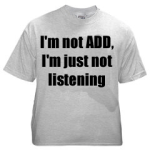Digital Natives
January 17, 2009
I am currently reading a book called Born Digital: Understanding the First Generation of Digital Natives (Palfrey and Gasser, 2008). The book is quite balanced as it is written by a couple of lawyers who happen to also have kids that belong to the category of ‘Digital Native’. The term refers to kids born into and raised in a completely digital world. In some ways it is the label for the new generation born after 1980 (like Baby Boomer, Generation X, and so on), but in another way it is limited in that it does not accurately describe the thousands of kids who may have access to the technologies but are not skilled in their use. The book is partially a sociological description of the culture of these natives and, to a lesser extent, Digital Immigrants. They do make some recommendations throughout and I think some of their conclusions are thought-provoking. Here are a few from what I have read so far:
The book is partially a sociological description of the culture of these natives and, to a lesser extent, Digital Immigrants. They do make some recommendations throughout and I think some of their conclusions are thought-provoking. Here are a few from what I have read so far:
1. Digital Natives are typically quite savvy about their use of the technologies available. The real people to worry about appear to be the younger kids who do not have the same “digital literacy” and perhaps even the older folks to some extent. In short, “those users who fall on either side of the participation gap”.
2. The growth of Digital Dossiers is a big question mark for the future. The term refers to the expansion of records kept in digital form that can be copied ad infinitum and shared with virtually anyone. Much of this is private at present, but what about the future? “Technologies and how they are used, and social norms will continue to change, probably more rapidly than they have in the recent past. What’s enduring about the narratives of the lives of Digital Natives…is that some of them will come to regret the trade-offs in control they’ve made in the name of convenience.”
3. The move toward a global online culture may lead to the strengthening of democracies but there are some open questions about the limits of creativity and the management of the technology.
4. The need for kids to be taught critical thinking skills is greater than it has ever been before. Related to this are issues of quality, information overload, and safety. Teaching kids how to navigate the complex environments is better than attempting to blame the technology.
5. Digital Natives do not think of their online world as being separate from what many of us would call “the real world”.
For more information on this topic the following sites are helpful.
The Diverse and Exploding Digital Universe (predicts ten-fold growth in five years)
http://www.digitalnative.org/wiki/Main_Page